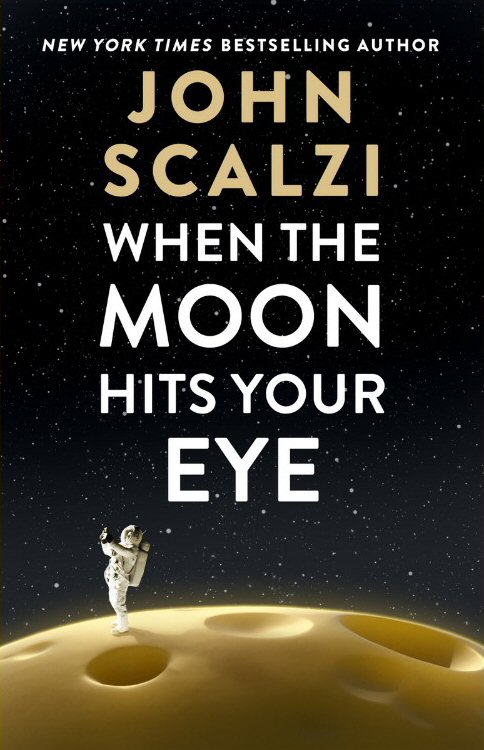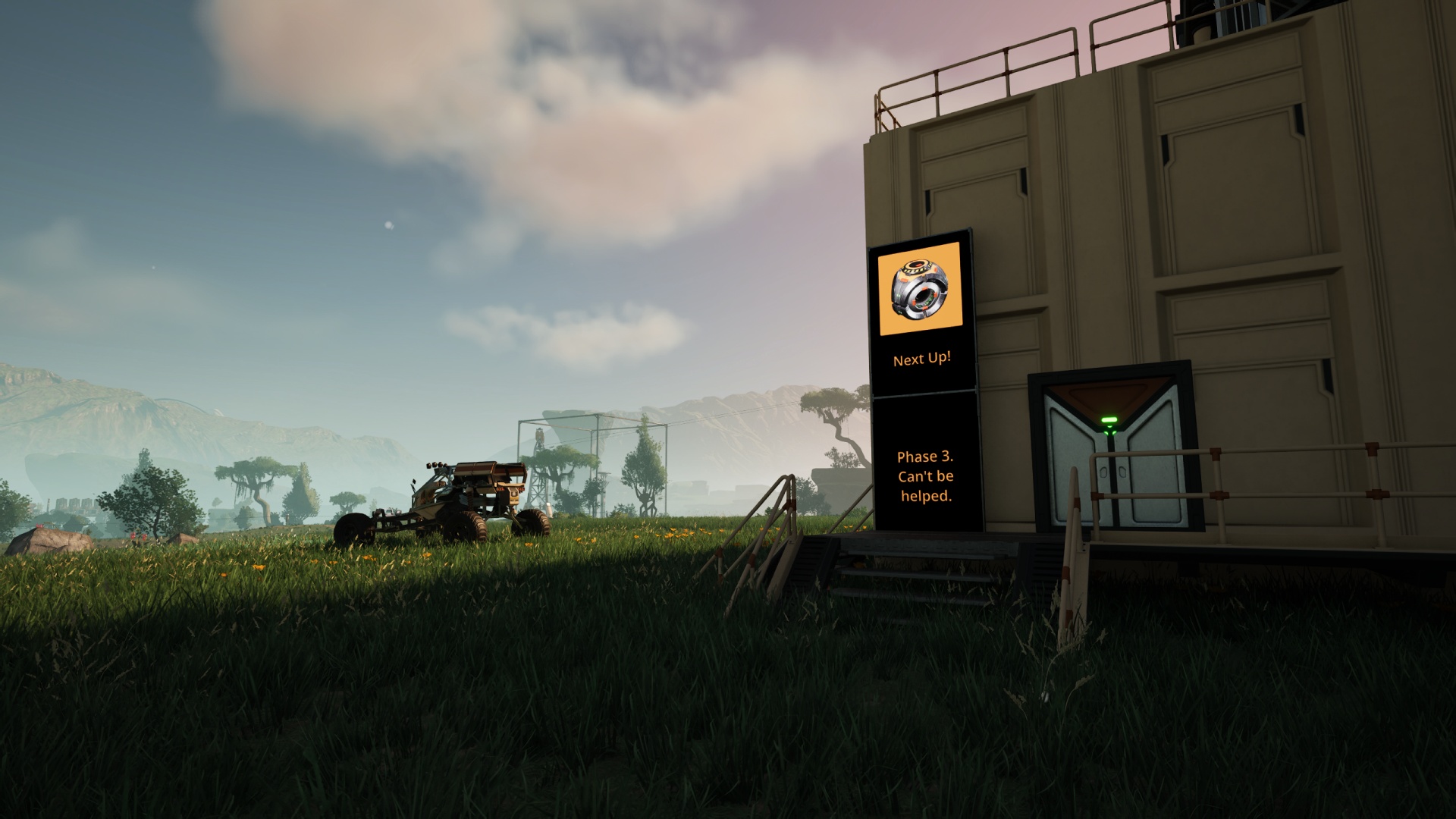But what if the moon really was made of cheese?
That’s an absurd premise, indeed. When you stop to think about it, though, most of the “what if” ideas that launch us into science fiction stories are absurd. We’re probably never getting to travel to whatever point in the past or future we want to at the press of a button. We’re probably not going to hurtle through interplanetary space at speeds above that achieved by photons of light. And so on. While many “what if” stories dig into the technical mechanics of the thing, they usually also shine a light on what people would (or at least might) do when faced with this new element in society. What might time travel or FTL space travel do to “us”? Oh, and make sure to include some actual-science-y stuff because those nerdy details are fun to speculate about, of course.
But what if we threw out any need to dig into the high-tech gee-whiz of it all and replaced that aspect with… well, Cheez Whiz?

What we’re left with is the human angle, and that’s what this novel is all about.
I find myself compelled to point out what the book isn’t before I can get into what the book does. It isn’t a rollicking romp of a story as we’d normally expect from a Scalzi jaunt. Like, the story’s there but it isn’t the usual case of introducing a core cast of characters and following them through events from start to finish. The overarching story kind of isn’t even the point of the exercise. Yes, the Moon becomes a hunk of cheese-like substance equal in mass to that which was the Moon, and people in authority have to deal with that, and that is the primary through-line of the book. (It is, at its core, a classic “cheesy disaster movie” setup with a fun, twisted emphasis on the “cheesy”.) However, the replacement Moon is itself also largely irrelevant except for the ways in which the cheese-ness of the thing affects various individual people we’re introduced to over the course of the lunar cycle timeframe of the novel. (Until it becomes grimly relevant to everyone involved.) Look, it’s weird, I can’t really explain it better than that.
The more I sit with the experience of reading the book, the more certain I am that When The Moon Hits Your Eye is, at its heart, John Scalzi’s ruminations on and possibly processing of a mid-life crisis. I absolutely do not mean that as a negative impression, nor as a derogatory comment. He makes it work, and occasionally makes it sing. The man’s good at what he does, and what he does best is introduce characters, put them into A Situation, and extract some kind of real human feeling (laughter, sorrow, contemplation, etc) out of it. Nearly every chapter of this novel centers on one or more characters (often, but not always, brand new to us) dealing with a distinct aspect of the “Moon made of cheese all of a sudden” situation. And for all the comedy value, there’s also a profound level of feeling unmoored from the world you thought you knew involved in having something fundamental in your reality just… change, completely and inexplicably. How do we handle that? And then what happens when the change leads to potential absolute catastrophe?
To be clear, this is still Scalzi at his easy breezy best: He loves chatty banter, and so do most of his fans, which is good because there’s plenty of that on offer. But along the way there are episodes about young love, the struggles of trying to create art when the world is falling apart around you, the ridiculousness of the idle (and rapacious) rich, wrestling with faith, facing one’s impending mortality with whatever amount of dignity can be managed, pondering the imponderable, the nature of scientific understanding, what it can take to achieve familial reconciliation, saying what needs to be said when everyone around you insists that you mind your manners and play nicely with jackasses, and so on. It’s less of a jaunty romp and more of a slice-of-life anthology. Just, you know… deliberately a bit cheesy, in more ways than one.
Because it’s set in vaguely-contemporary times, Scalzi also gets to make a bit of social commentary here and there. We get the equivalent of epistolary content in the form of online chat logs and news articles and Reddit threads, that sort of thing, and he uses them to hold up quite the mirror to the way some of us are. (The epilogue-type bits are especially pointed. Ha ha, yeah, we would be like that, wouldn’t we?)
This feels like a very personal book. More than once we deal with the vagaries of writing and/or publishing. One vignette involves the provenance of a guitar. Several of the episodes center on a kind of mild-mannered Midwestern USA folksy people who are all decent, some of them God-fearing and some not, but just want to see things come out okay in the end and are willing to help their community as best they can toward that end. None of this is specifically autobiographical but it all feels very informed by Scalzi’s personal life in a way you don’t often get from his other novels.
I’ll grant you that I may be reading (ha ha) more into this because the author and I are close in age, plus both belonging to the “nerdy white guy in the USA” demographic. But… I don’t think that’s entirely the case. The man put a great deal of work into crafting this huge array of characters and all the little situations to put them in, and nobody works that hard without some kind of motivation. He didn’t have to. There’s a potential version of this book that’s more of a standard silly semi-comedic SF romp… and I think I’m glad we got this version instead.
So… do I recommend it? Yes. Easily. Just don’t go in expecting another Starter Villain or Kaiju Preservation Society. Expect to do more pondering than cheering.
You may not come back to this novel again and again as a comfort read, but I strongly suspect that for some of us, we’ll want to revisit parts of it from time to time. Maybe after looking up at the Moon.
